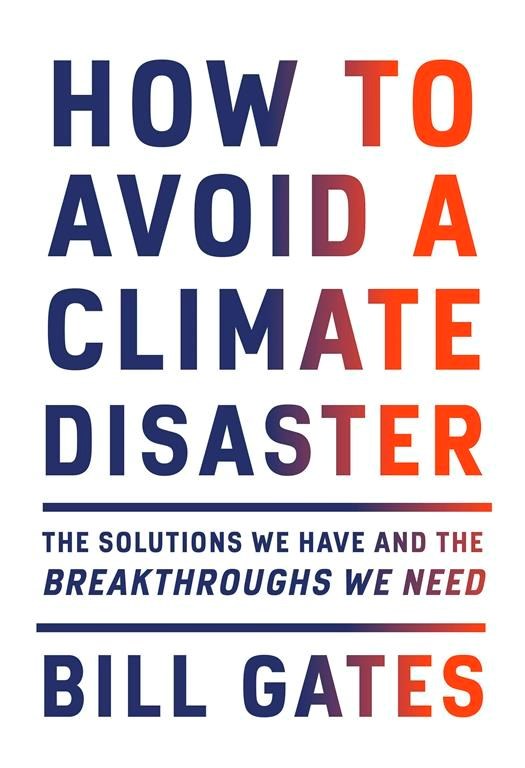“How to Avoid Climate Disaster: The Solutions We Have and the Breakthroughs We Need,” by Bill Gates (Knopf)
Watching Bill Gates in the news over the years, his
Gates has crafted a calm, reasoned, well-sourced explanation of the greatest challenge of our time and what we must change to avoid cooking our planet in “How to Avoid Climate Disaster: The Solutions We Have and the Breakthroughs We Need.”
His goal with this book appears to be to explain and persuade and although he doesn’t say so in the book, the implicit theme parallels something President Abraham Lincoln once said: “Give the people the facts and the nation will be safe,” meaning we Americans would make the right decisions about the problems we face if we have the facts.
Will we though?
Certainly in recent years many Americans have felt completely free to adopt their own beliefs on everything, completely unmoored from science and truth.
What should make Gates’ book compelling to climate-change skeptics however are the concise, straightforward explanations of, for example, how much carbon is produced in the making of electricity and what we can do to reduce that.
Gates works through steel, meat-production, flying and every other way we produces carbon dioxide and other gasses that are causing our atmosphere, oceans and land to retain more heat.
One conclusion sure to provoke debate is Gates’ contention that to conquer global warming, we need to produce at least some of our electricity from nuclear power, which he notes, is clean and safer than ever.
And Gates is funding multiple research projects himself focused on finding ways to, among other things, make cement without releasing carbon into the atmosphere.
Gates cautions however, that we can’t invent our way to a reprieve from catastrophic global warming.
Can we make the sacrifices and changes necessary to, for example, shift to a more plant-based diet? Cows expel great quantities of methane, which causes 28 times more warming per molecule than carbon dioxide.
Gates implores federal governments to fund more research on how we can shift to an economy that can reduce our damaging emissions to zero by 2050.
He acknowledges that the issue is complex but he says the Biden administration understands the urgency for action.
What about for the rest of us?
We can buy green products whenever possible, he asks, and we also must demand public policies that put us on a path to zero global-warming emissions.
And if we don’t? Gates’ book is high on solutions and low on dire warnings, the staple of many other writings on climate change.
Still, Gates occasionally points out the realities of inaction. Just a 2 degrees Celsius rise in ocean temperatures, he notes, could kill coral reefs and destroy the food source for 1 billion people.
To avert that, he says, “we need to accomplish gigantic we have never done before.”
Jeff Rowe, The Associated Press



